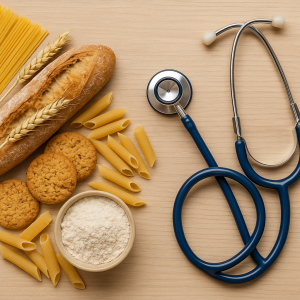 Caffeine is a natural stimulant that is found in a number of plants, including coffee beans, tea leaves, cocoa beans, and kola nuts. It is a central nervous system stimulant that can help to improve mental alertness, improve mood, and increase energy levels.
Caffeine is a natural stimulant that is found in a number of plants, including coffee beans, tea leaves, cocoa beans, and kola nuts. It is a central nervous system stimulant that can help to improve mental alertness, improve mood, and increase energy levels.
How caffeine works
Caffeine works by blocking the action of a neurotransmitter called adenosine in the brain. Adenosine is a chemical that is involved in regulating sleep and drowsiness. When caffeine blocks the action of adenosine, it causes an increase in the activity of other neurotransmitters, such as dopamine and norepinephrine, which can lead to increased alertness, energy, and focus.
Caffeine is absorbed into the bloodstream relatively quickly after it is consumed, and its effects can be felt within 15-45 minutes. The effects of caffeine can last for several hours, although the length of time can vary depending on individual factors such as age, weight, and metabolism.
Article continued below
It is important to note that caffeine can have side effects in some people, including insomnia, anxiety, and rapid heartbeat. It is also possible to develop a tolerance to caffeine, which means that higher doses may be needed to achieve the same effects over time. It is generally recommended to consume caffeine in moderation.
How long does caffeine remain in the bloodstream
The amount of time that caffeine remains in the bloodstream can vary depending on several factors, including the individual’s age, weight, metabolism, and the amount of caffeine consumed. In general, caffeine has a half-life of about 3-5 hours, which means that it takes about 3-5 hours for the body to metabolize and eliminate half of the caffeine that has been consumed.
For example, if you consume 200 mg of caffeine (about two cups of coffee), it would take about 5 hours for your body to metabolize and eliminate half of the caffeine. After about 10 hours, about 75% of the caffeine will have been metabolized and eliminated, and after about 15 hours, about 87.5% of the caffeine will have been metabolized and eliminated.
It is important to note that the effects of caffeine can vary greatly from person to person, and some people may be more sensitive to the effects of caffeine than others. Some people may also be more prone to developing a tolerance to caffeine, which means that they may need higher doses to achieve the same effects over time.
Sources of caffeine
There are many sources of caffeine, including:
- Coffee: Coffee beans contain caffeine and are a common source of caffeine in many countries. Coffee is typically prepared by brewing roasted and ground coffee beans with hot water.
- Tea: Tea leaves also contain caffeine, and tea is a popular beverage in many parts of the world. Tea is typically prepared by steeping tea leaves in hot water.
- Soft drinks: Many soft drinks, such as colas and some energy drinks, contain caffeine.
- Chocolate: Cocoa beans, which are used to make chocolate, contain caffeine. Dark chocolate generally contains more caffeine than milk chocolate.
- Energy drinks: Energy drinks are beverages that are marketed as a way to increase energy and alertness. They often contain caffeine, as well as other ingredients such as taurine and B-vitamins.
- Over-the-counter medications: Some over-the-counter medications, such as pain relievers and cold and allergy medications, contain caffeine.
- Supplements: Caffeine is also available in supplement form, and it is often used by athletes and bodybuilders to increase energy and endurance.
It is important to note that the amount of caffeine in these products can vary greatly, and it is important to read labels and be aware of how much caffeine you are consuming. It is generally recommended to consume caffeine in moderation.
Safe daily caffeine amount
The safe daily caffeine intake for adults is generally considered to be up to 400 mg per day. However, this amount can vary depending on the individual and factors such as age, weight, and sensitivity to caffeine. Some people may be more sensitive to the effects of caffeine and may experience negative side effects at lower doses, while others may be able to tolerate higher doses without experiencing any negative effects.
It is generally recommended to consume caffeine in moderation. Caffeine can have negative side effects in some people, including insomnia, anxiety, and rapid heartbeat. It is also possible to develop a tolerance to caffeine, which means that higher doses may be needed to achieve the same effects over time.
If you are pregnant or nursing, it is generally recommended to limit caffeine intake to 200 mg per day or less. Children and adolescents should also limit their caffeine intake, as caffeine can affect their developing bodies and brains. The American Academy of Pediatrics recommends that children and adolescents consume no more than 100 mg of caffeine per day.






